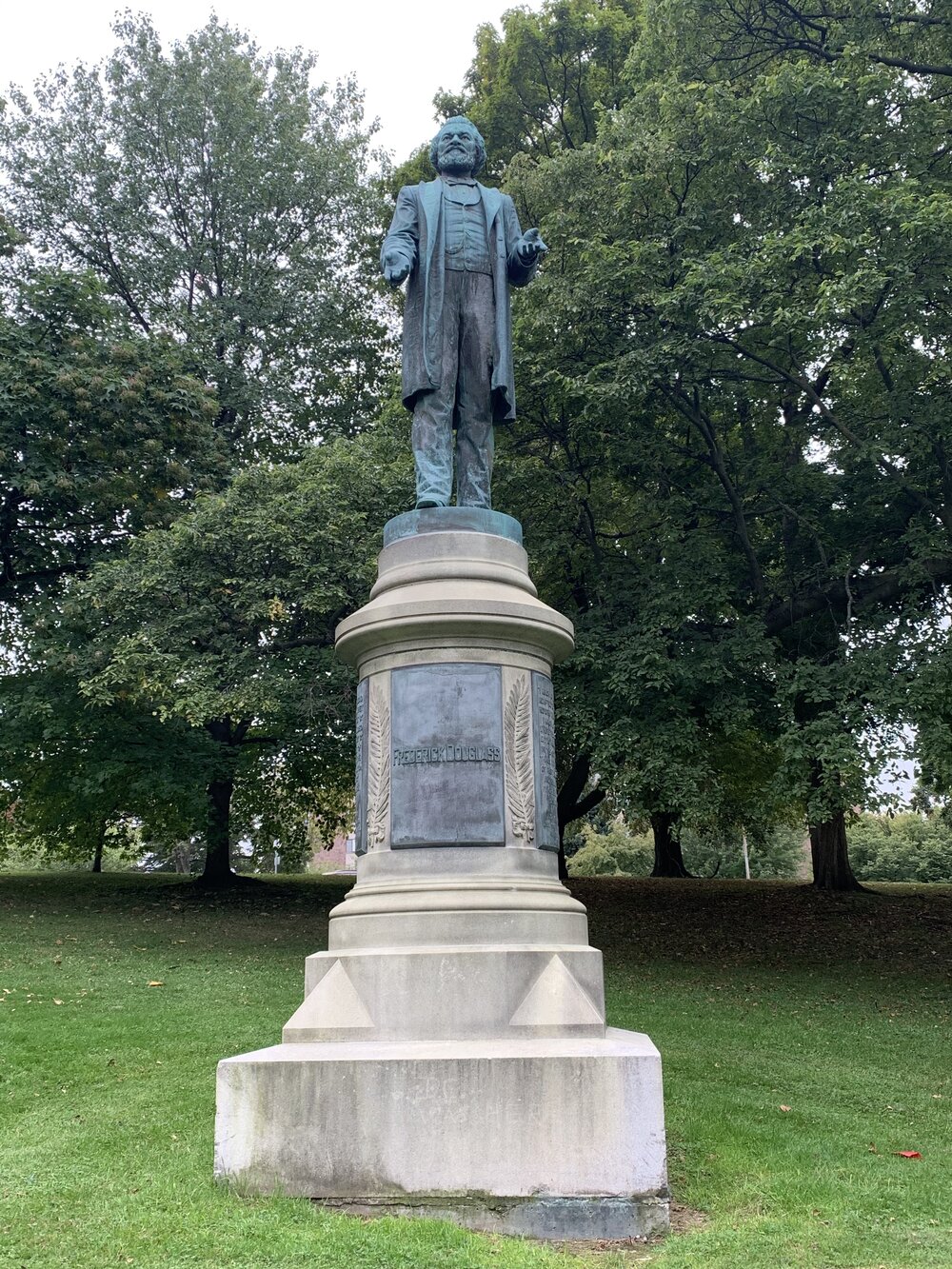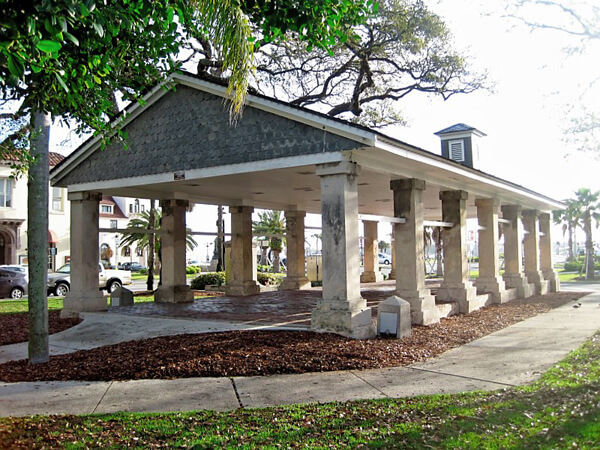Lincolnville Museum and Cultural Center
March 24th, 2022
The lincolnville Museum, which once served as the first public black high school in St. Augustine, is now a home for the rich history of not only the black experience in St. Augustine, but in America as well. According to their website, "the LMCC’s mission is to preserve, promote and perpetuate over 450 years of the African American story through the arts, educational programs, lectures, live performances and exhibits".
Source Link: https://www.lincolnvillemuseum.org
Interior Images:
This first image is a large wooden block located in the front of the museum and is host to hundreds of nails. The further the image goes up, the more disperse the nails become. This piece, lacks much information, however in a strange way seems to tell a story about the oppression that has lingered in St. Augustine.
These chairs, located in the museum, were once located in the Woolworth Diner. In 1960, four young African American students sat down at the counter, and politely asked to be served. What followed would go down in history, and is now a symbol for the racial inequality in the south.
Exterior Images:
Although this image doesn't show the building, it shows the stunning greenery that surrounds the building.
In Conversation:

From the moment I saw the small MLK monument at the Linconville museum, it reminded me of the Fredrick Douglas one located back home in Rochester NY. This stature is in honor of an abolitionist who escaped slavery himself, and made it his life work to help others, and is thought to be the first public monument dedicated to an African American in the United States.

A large part of not only Florida history, but southern history as a whole is slavery. Before the emancipation of African Americans, this now historical landmark was used as a slave market, which similarly to the Linconville Museum, shows just how deep routed the racism is in St. Augustine. Something that still persists today.
Literary In Conversation:
Ann Browning Masters - Floridanos, Menorcans, Cattle-Whip Crackers
But that kindness was circumscribed by race, religion, when one's family moved to the country, and into whose family one married. There was, therefore, no anonymous crowd from which cruel acts could be brazenly committed. Any victims certainly knew their tormentors.
I chose this piece, because it takes on the topic of race in Florida. Since the first settlers made their mark in this town, racism has been a problem. The Linconville Museum, just like this poem take this problem head on instead of burying it deep down.
Creative Componet:
(from the perspective of the young African Americans sitting at the lunch counter)
we came in for lunch, and nothing more.
we sat there in silence, just us four.
we were polite, and kind, not there for war.
but just us being there, caused quite the uproar.
we came in for lunch, not to start a fight.
we were there for a meal, which is a basic human right.
we are four human beings, but us not being white,
caused the people of Woolworth, to not be polite.








No comments:
Post a Comment